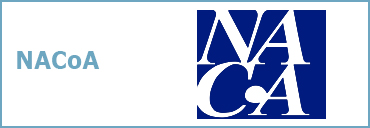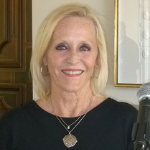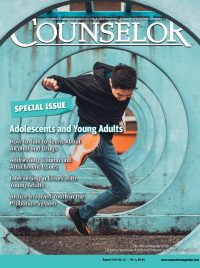Share

Imagine you had a child (a young adult) who was secreted away to treatment for COVID-19, and no one would talk about it due to stigma associated with this dreaded, life-threatening disease. This is what is still happening with substance use disorders (SUDs), adding layers of shame to what should be viewed as a health issue. Imagine further that your loved one is incarcerated due to substance use, and the family is so cloaked in shame that there is an implied bond of loyalty in protecting this secret like a badge of honor. This system of silence has increased and exacerbated the thorny problem of accessing treatment and recovery.
My two sons struggled for decades with heroin addiction. My older son is a survivor of both incarceration and overdose, and my younger son had many episodes of both treatment and criminal justice involvement. I had been advised by health care professionals to distance myself and to practice “tough love.” I was labeled a codependent for being so involved in advocating for therapeutic treatment options for them. But I knew that allowing them to “hit bottom” would mean death, so I practiced what I call “true love.” The sad fact is that no one really understands the precise nature of SUDs, so we have been mishandling it for decades. Instead of seeing it as a behavioral issue (e.g., bad people doing bad things), it needs to be regarded as a health disorder that requires compassion, tolerance, treatment, and family love and guidance.
As human beings we hate what we fear, and we fear what we do not understand, so all family members should be involved in learning about SUDs, treatment options, and recovery support services. Instead, we have been encouraged to keep our family’s dirty secrets in the closet, removing them from societal judgment.
My sons came by their disorders honestly, via their genes. There was untreated addiction for generations in their father’s family history, but as with most family dynamics it was regarded as disloyal to discuss it. There is a fine line in identifying when it is your story to tell, when it is their story, and when it is our story. When I started speaking out in 1999, to break through the shackles of shame and advocate for therapeutic and restorative drug policies rather than punitive, prohibitionist policies, I first asked my son for permission to tell his story. He was in prison for marijuana possession at the time, but he agreed that in telling our story we might make life better for others. I am forever proud of his act of courage.
When I spoke out, it was as if there was a big exhale. So many parents started admitting that they were dealing with the same painful issues. It felt like in opening our mouths to tell our truths we were allowing others to speak out as well. This was the beginning of building a movement of moms.
Past research has shown that “46 percent of US adults say they have a family member or close friend who is addicted to drugs or has been in the past” (Gramlich, 2017). Unfortunately, that means that so many families are also dealing with the maze of the criminal justice system and incarceration, and far too many parents are experiencing the unfathomable loss of a child to an overdose, which could have been prevented by using harm-reduction strategies such as syringe exchanges, medication-assisted treatment, and Narcan (i.e., a safe drug that reverses an opioid overdose) distribution. But stigma runs deep, and we still have a long way to go to treat this problem in a humane, noncritical, and effective way.
I have heard so many stories about siblings being intolerant of their brother’s or sister’s drug problem, because the selfish nature of the disease sucked all of the air out of their living room. They have been programmed to believe on some level that their siblings are capable of using willpower to just stop their drug use so the family can heal, rather than understanding their important role in providing guidance, understanding, and love. I will not pretend that people who are lost in the dark hole of addiction are pleasant or easy to deal with, but I do implore people to believe in their best natures and to never give up hope that they can find their way to recovery.
Today we are living in a triple crisis of COVID-19, opioid overdoses, and systemic racism. Communities of color and poverty are harder hit by all of these issues. Never before has it been so urgent that we develop a compassionate and tolerant system of care. We still witness layers of stigmatization and the destructive practice of “othering” people—individuals with bipolar disorder are somehow easier to accept than those with borderline personality disorder, and alcoholics are viewed as better than heroin users. There is a persistent caste system. I believe we need to embrace drug decriminalization so we can reduce harm and address the real needs of our communities with open minds.
Both my sons are in long-term recovery now and our family is healing and thriving. There have been generations of addictive illness, but there is also a lot of recovery in my sons’ families. We are all blessed that there is now a robust recovery community—with people from all walks of life, cultures, and ethnic backgrounds—sharing their stories and providing mutual support. By airing family secrets, we can dispel stigma and discrimination and promote positive, life-affirming policies and laws.
References
Gramlich, J. (2017). Nearly half of Americans have a family member or close friend who’s been addicted to drugs. Retrieved from https://www.pewresearch.org/fact-tank/2017/10/26/nearly-half-of-americans-have-a-family-member-or-close-friend-whos-been-addicted-to-drugs/

Gretchen Burns Bergman
Gretchen Burns Bergman is the cofounder and executive director of A New PATH (Parents for Addiction Treatment & Healing) and lead organizer of the Moms United to End the War on Drugs national campaign.









 Counselor Magazine is the official publication of the California Association of Addiction Programs and Professionals (CCAPP). Counselor offers online continuing education, article archives, subscription deals, and article submission guidelines. It has been serving the addiction field for more than thirty years.
Counselor Magazine is the official publication of the California Association of Addiction Programs and Professionals (CCAPP). Counselor offers online continuing education, article archives, subscription deals, and article submission guidelines. It has been serving the addiction field for more than thirty years.